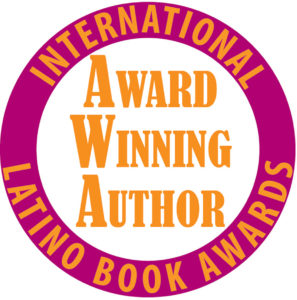Support Cubanabooks
To support Cubanabooks, visit our page at North Valley Community Foundation.
Author: María Elena Llana
Translator(s): Barbara Riess
ISBN: 978-0-9827860-3-1
How to Purchase
Our books are available for individual purchase (print and e-books) at Amazon.com(opens in new window) and most other online retailers.
For library, bookstore, or other bulk orders please contact Small Press Distribution(opens in new window) or write to the editor-in-chief at scooper@csuchico.edu.

Best Fiction Book Translation — Spanish To English
International Latino Book Awards 2016
Solitary characters, afflicted by real or fictitious fears. A world plagued with absurdities. This is what María Elena Llana has in store for us in her exceptional stories, told through a subjectively ironic perspective with both humor and an evenhanded cruelty. Since the early 1960s—an exceptional period in Cuban history due to the social changes triggered by the 1959 Cuban Revolution—until well into this century, her work has been dynamic, contemporary, and based since its inception on a personally distinct voice that has challenged standard literary models.
One of the cultural paradoxes of the 1960s, visible now with the benefit of hindsight, was the coexistence of two different literary currents. Along with the officially privileged tendency towards heroic fiction—giving rise to a sort of “narrative from the barracks”—a distinctive style also emerged. Characterized as comedic with gothic tendencies, it had elements of dark humor and fantasy far removed from the physical world. Cuban writers Ezequiel Vieta and Virgilio Piñera had already solidified this type of short fiction through their work and young aspiring writers sought to join them. Extraordinarily, these writers were fundamentally women: Evora Tamayo, Esther Díaz Llanillo and, of course, María Elena Llana.
Llana, beginning with her first book La reja in 1965, has always been committed to this style of writing. Her stories humorously represent a vision of the world through a palpable irony leading up to a subversive guffaw that, because of Llana’s scathing wit, may also be read as an anguished holler. Llana burst on the literary scene with an authentic, espíritu burlón, a “mocking spirit,” to use the words of a cha-cha-cha popular at the time. This quality is at the heart of Llana’s stories teeming with spectres of every type, dramatic or ridiculous, but always efficiently suggestive of circumstances underlying what we take for reality.
Her short stories are written through a refined language—both in the “cultured” and the “distilled” sense of the word. The world they reveal is strained by the irrational, by characters connecting with readers through their alienating present or a phantasmagoric and seemingly obsolete past. Superbly created, Llana’s subtly suggested atmospheres are not without a moral element: her sarcasm and a dark humor aspire to reveal a profoundness of ethical and social dimensions.
On various occasions, the author has confessed “a fundamental interest in people that have been battered about by history—especially the bourgeoisie displaced by the Revolution. I find them heartrending with their recurring ancestral contradictions, and look on them ironically but also with compassion.” In one way or another, all of Llana’s stories have a common thread running through them, that of a disintegrating reality: the image of the end of an era created through characters on the edge of extinction or by the backdrop of a contemporary reality that never lived up to the expectations of a younger generation.
—Mirta Yáñez
With superlative style, Llana has always known how to craft her own island of words, an interior exile, or “ins-isle” if you will, on her native Cuba. Thanks to Cubanabooks and Barbara Riess’ translations, a broader audience can finally read the work of whom I consider the most important living woman short fiction writer in Cuba today.
Madeline Cámara, author of Cuban Women Writers: Imagining a Matria (Palgrave, 2008)
Gracias al esfuerzo de Cubanabooks y la estudiosa y traductora al inglés, Barbara Riess, podemos finalmente recibir la obra de quien considero la más importante cuentista cubana viva, María Elena Llana. Llana siempre ha sabido crear, en el mayor estilo, su isla de palabras, un "insilio" dentro de su isla natal. Allí reside y desde allí ha escrito una obra breve pero a mi juicio la más valiosa en la cuentísticacubana contemporánea escrita por mujeres.
Madeline Cámara. Editor, Escritoras cubanas. La memoria hechizada (Juventud, 2010) and author, Cuban Women Writers: Imagining a Matria (Palgrave, 2008)